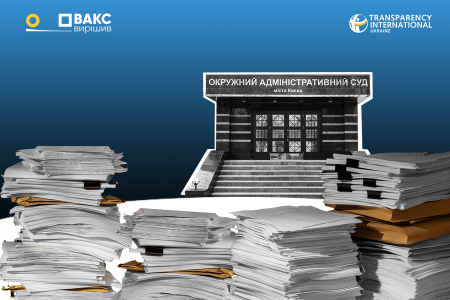“Well, if a little bag happens to fall near the closest post over there, is that doable?”
“Well, somewhere to the side, yes. A man will walk by now and drop a bag.”
At that point, the detective said he did not agree to have another person hand over the money.
PERSON_8 then replied: “Alright. Right over there on the grass. A small bag to the left there. On the grass to the left?”
Later, PERSON_8 clarified: “Well, there’s just a white Mercedes that’ll drive up and toss the bag on the grass. It’ll slow down and drop it, open the door and drop it so no one sees.”
This excerpt from the verdict of former head of the Huty Forestry Enterprise, Viktor Sysa, is a dialogue between the convict and a detective. This is how Sysa tried to bribe the detective to close a case about fraud at the forestry enterprise. And it illustrates the problem faced by those involved in corruption — how to hand over money without getting caught.
While popular culture often pushes the stereotype that bribes are passed in black leather briefcases by men in suits in the parking lots of business centers, in reality, this is rare. The main goal in such dealings is to remain as inconspicuous as possible.
We decided to take a look at how convicted Ukrainian bribe-payers, as well as suspects or defendants in corruption cases, handled this task.
The Reading Club
Books are very common “hiding spots.” Sometimes they’re about the law, sometimes not at all.
“Save Our Souls”
Judge Nataliia Ovcharenko of the Kirovskyi District Court of Dnipro, together with her colleague Judge Oleh Khodasevych, demanded a $30,000 bribe from a defendant in exchange for influencing prosecutors to soften the charges and secure a favorable court decision. Over several months, the judge received $16,000 before being caught by law enforcement.
The method of receiving the bribe is also interesting. The court ruling states that part of the money was handed over... hidden inside the Save Our Souls magazine:
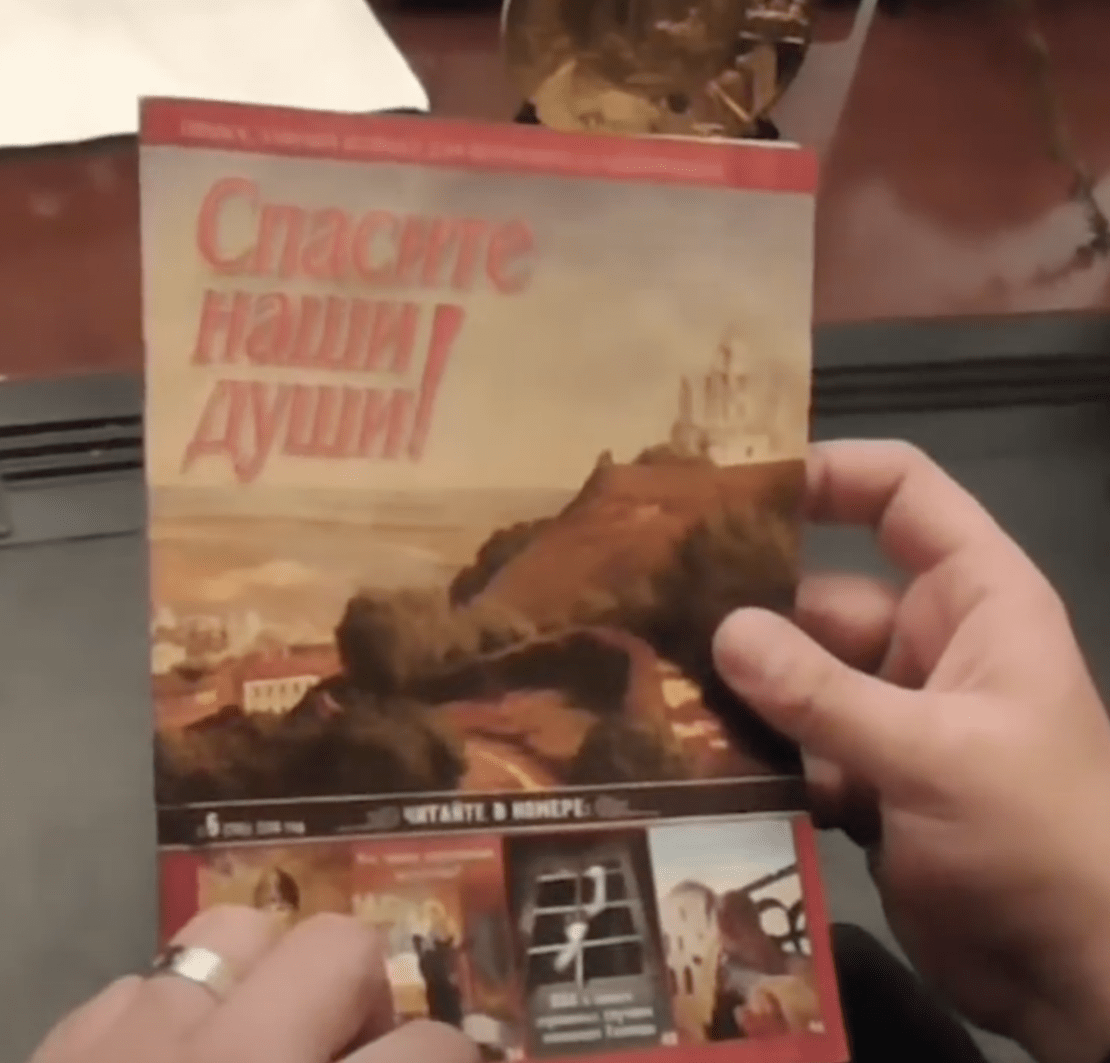
The illegal transaction was accompanied by this exchange:
“O: Looks alright, read the magazine [inaudible].
O: I’ll step outside now, you put it in here and leave it on the table.
P: No problem.
O: Read the magazine [inaudible].”
The judge handed one of the defendants from whom she had demanded the bribe, the Save Our Souls magazine, and left the room. The man put the money inside the magazine and left it on the table.
Later, criminal proceedings were opened against Nataliia Ovcharenko and the then chairman of the court, Hennadii Pidbereznyi. In September 2017, the judges caught taking bribes came directly to the office of then-head of the SAPO Nazar Kholodnytskyi — with, attention please — a $50,000 bribe in hand. According to Kholodnytskyi, they offered him a total of $300,000 in exchange for closing the criminal case against Ovcharenko and Khodasevych.
The HACC sentenced Ovcharenko to 10 years in prison and 3 years of disqualification from holding certain positions, with confiscation of all her property. She later disappeared and the HACC Appeals Chamber put her on the wanted list. Khodasevych died in 2018, so the case against him was closed.
Code of Ukraine on Administrative Offenses
In April 2018, a bus driver handed Judge Olena Zhyvtsova of the Kalanchak District Court in Kherson Region UAH 5,000 in exchange for a favorable decision. Under their agreement, she was not to hold him administratively liable for transporting passengers without a license. According to the investigation, Zhyvtsova threatened that if he did not pay the bribe, she would impose a fine of UAH 17,000 on him.
The verdict states that the man placed the money inside a printed copy of the Code of Ukraine on Administrative Offenses, which the judge was holding in her hands. All this took place right in the courthouse corridor. What’s more, the judge kept the bribe hidden in the Code in a drawer of her desk until NABU conducted a search.
The HACC sentenced Zhyvtsova to five and a half years in prison and three years of disqualification from holding certain positions, with confiscation of all her property. Later, the appellate court and the Supreme Court upheld the sentence without changes.
“Commentaries on the Traffic Rules of Ukraine”
In the summer of 2024, Iryna Chervynska, a clerk of the Bilhorod-Dnistrovskyi City District Court in Odesa Region, handed over two cases to a judge for review regarding the determination of a child’s place of residence with the father. At the same time, she emphasized that she was personally interested in these cases and asked for favorable rulings.
Later, she delivered a $2,000 bribe to the judge through a driver. The handover took place at the Maestro” café — the money was hidden inside a book titled “Commentaries on the Traffic Rules of Ukraine.”
Chervynska later confessed and even testified about an organized group operating in the Bilhorod-Dnistrovskyi City District Court. According to the investigation, this group included at least 12 people who systematically arranged illegal changes of children’s places of residence in this manner.
The HACC approved a plea agreement and sentenced Iryna Chervynska to four years in prison.
There Are Bags — and Then There Are Bags
A bag is the most common way to hide a bribe from prying eyes. As they say, no need to reinvent the wheel.
Merry Christmas Bag!
In 2019, Ihor Shcherbyna, former head of the Main Investigation Department of the Prosecutor General’s Office, and the godfather of SBI Director Roman Truba’s child, together with an intermediary, devised a fraudulent scheme. They tried to persuade representatives of a construction company to pay $150,000, allegedly for Roman Truba, to close a criminal case. In reality, Shcherbyna simply decided to exploit his influential godson’s father’s name.
According to the verdict, half the bribe — $75,000 — was handed over at the Fujiwara Yoshi restaurant. The money was placed in “a black cardboard gift bag with dark gold-colored handles and a gold-colored pattern and inscription reading Merry Christmas!”
The HACC sentenced Ihor Shcherbyna to six years in prison with confiscation of property. The HACC Appeals Chamber upheld the sentence. However, proceedings in the Supreme Court are still ongoing.
The black-and-brown bag with dark gold handles and the golden Merry Christmas inscription was ordered by the court to be destroyed as having no value.
Blue Bag
In February 2019, Oleksandr Mefodii, a member of the Kyiv Regional Council, demanded a bribe from a local businessman in exchange for not obstructing the illegal felling of trees. After being refused, Mefodii turned up the pressure — he filed a report with law enforcement accusing the businessman of illegal logging, and the police later seized the man’s truck. They eventually agreed on a sum of $5,000, but in reality, the council member received only $200 — the rest of the bills were fake.
The method of delivery was quite remarkable. The ruling states: “He [the businessman] was supposed to toss a bag with the money, totaling $5,000 (five thousand US dollars), over a fence into the yard of a residential house located near a church, where his car would be parked.”
This plan was carried out as arranged — that same day, the money, in a blue plastic bag, was thrown over the fence into the agreed yard.
The HACC sentenced Oleksandr Mefodii to five years in prison, but the appeal later reduced the sentence to two and a half years after reclassification of the offense. The cassation appeal was dismissed.
Santa With Money
This case is classified, so there is currently no description of it on the platform. All the information below comes from media reports and law enforcement press releases.
The SAPO accuses former mayor of Sumy Oleksandr Lysenko and former director of the Sumy City Council Infrastructure Department Oleksandr Zhurba of receiving a bribe of UAH 2.13 million.
The officials allegedly demanded money from the owner of a company that provided waste removal services. If the bribe wasn’t paid, the company would face obstacles in its operations.
The NABU published footage from hidden surveillance showing the officials receiving the first part of the bribe — UAH 450,000 — in a Christmas bag with Santa Claus on it:
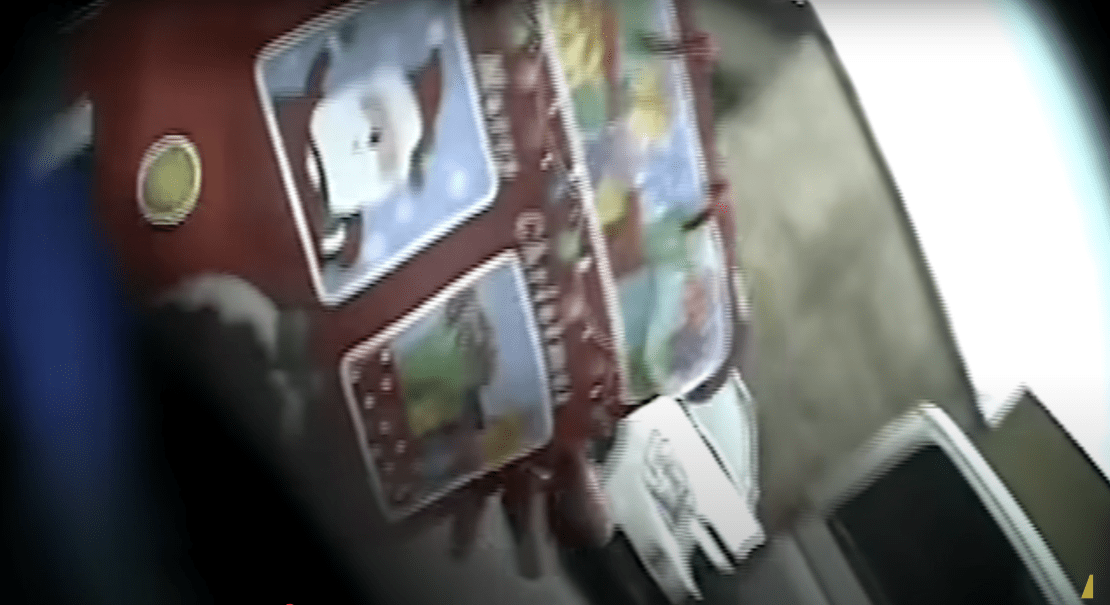
In March 2024, NABU completed the investigation. The HACC began hearing the case in autumn 2024, but in March this year, Lysenko announced he had been mobilized into the Armed Forces of Ukraine. So there is a possibility that the case against him will be suspended.
Other, Miscellaneous, and the Like
Sometimes, more unexpected everyday items are used to pass bribes, such as pea or coffee packaging, a Chinese box, and so on. Despite the originality of these hiding spots, the investigation still managed to find the money.
Pea Can
The HACC verdict states that in October 2019, Mykola Shershak, a judge of the Zarichnyi District Court of Sumy, asked for a bribe in exchange for decisions in two cases involving the same person. He priced his “services” at $2,000. One of the cases involved holding a man administratively liable for drunk driving.
The ruling quotes how Shershak (Sh) named the “price” for the decisions to the man (V):
“Sh — Good evening! The second case isn’t here yet, but the first case is set for the seventh.
V — For the sixth…
Sh — For the seventh.
V — For the sixth.
Sh — For the sixth? Well, look, the price for this will be — the city rate is a grand in USD. That’s for one case.
V — And for both?
Sh — M?”
$300 was seized from the judge during a personal search, and the remaining $1,700 was found during a search of his home. The money was hidden in a tin of Hospodarochka canned peas.
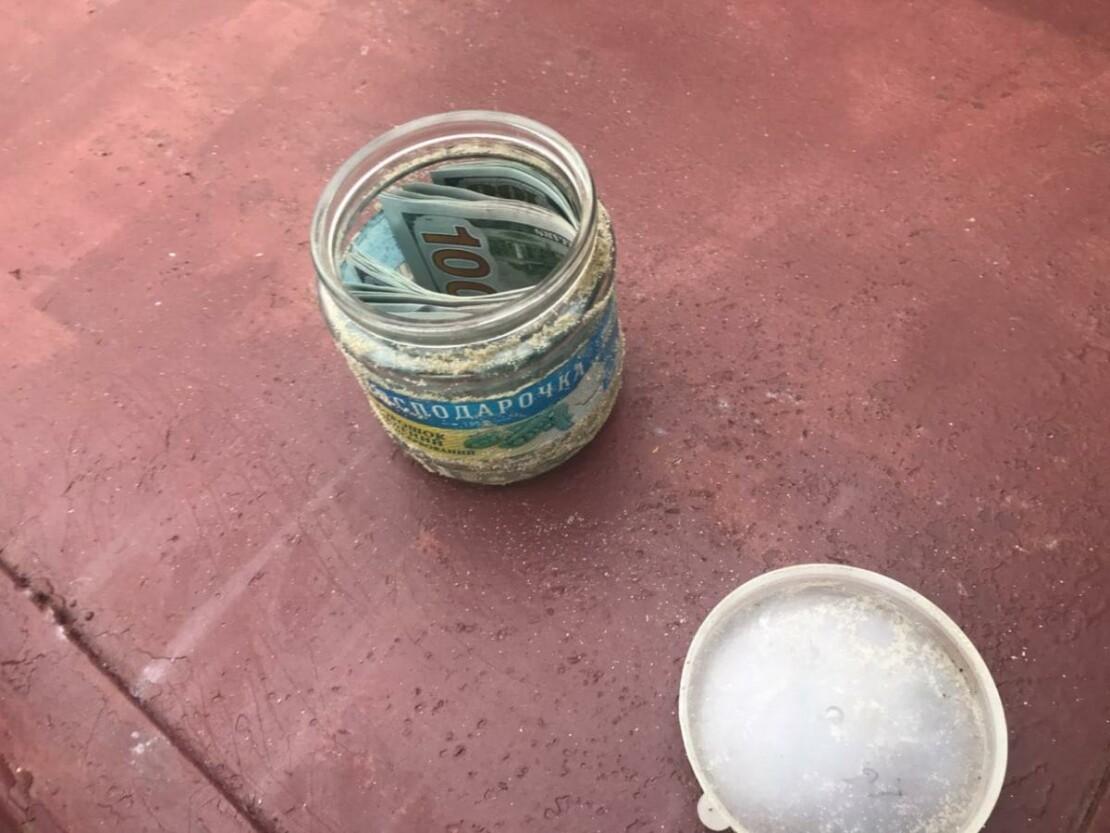
The HACC sentenced Shershak to seven years in prison, barred him from holding positions in the judiciary for three years, and ordered confiscation of all his property. The verdict is currently under appeal.
The ̶C̶h̶a̶m̶b̶e̶r̶ Pocket of Secrets
According to the investigation, in December 2016, Ihor Petryk, a judge of the Kyiv Administrative Court of Appeal, accepted a bribe for issuing a decision in favor of a company specializing in the disposal of hazardous waste. Previously, the company had faced proceedings to revoke its license.
As then-head of the SAPO Nazar Kholodnytskyi stated, the money was found “in [the judge’s] robe — there was some sort of specially made inner pocket, and that’s where [the funds] were seized.”
During a hearing at the High Council of Justice, the judge himself gave different explanations for receiving the money, and his versions kept changing. At first, he claimed that the money was supposedly family savings, which he kept at work because of “Chinese doors” on his apartment and because “they steal all the meters in the building anyway.” But later he admitted that the money had in fact been handed over by his assistant — claiming that the assistant had gone somewhere and made calls, and that the case against him was fabricated.
The HACC has not yet delivered a verdict in this case, as the proceedings were suspended due to Ihor Petryk’s mobilization. The ruling states that he now holds the position of assistant brigade commander for legal affairs and head of the legal unit of the 47th Separate Artillery Brigade.
Coffee Packaging
In November 2023, anti-corruption authorities exposed four judges of the Kyiv Appellate Court — Viacheslav Dziubin, Ihor Palenyk, Viktor Hlynianyi, and Yurii Slyva. According to detectives, they received $35,000 for lifting the seizure of two unique Antonov An-74TK-100 aircraft, an arrangement made with a representative of Constanta Airlines. These aircraft were material evidence in a criminal proceeding on obstructing the lawful activities of the Armed Forces of Ukraine. They are owned by the Estonian company EKA GRUPP OU, while in Ukraine, they were operated by Motor Sich JSC and Constanta Airlines.
According to media reports, NABU detectives found a coffee package stuffed with money tucked behind the waistband of Judge Yurii Slyva’s trousers. An identical amount, wrapped in an advertising brochure, was retrieved from Judge Viktor Hlynianyi’s car. Marked bills were also seized from the homes of Judges Ihor Palenyk and Viacheslav Dziubin. In Palenyk’s residence alone, investigators discovered nearly $25,000 in marked bills and another $100,000+, much of it packed in used coffee bags.
.jpg)
At a session of the High Council of Justice, which considered suspending, dismissing the judges and authorizing interim measures, Yurii Slyva explained:
“About the coffee handover — Ihor Palenyk often travels to Lviv and brings us coffee. For me, for colleagues, for retired colleagues. His apartment, they say, is piled high with coffee.
Right now, I have a huge bag of coffee sitting in my office. He passed it on for my friend, a retired judge, because I’m the one who talks to him more: “Pass it on to him, Mykhailovych. I’ll give you the money. Pass it on.” It was a habit — to get coffee from him. I have the best coffee machine, and we often drank that coffee in my office. He’d bring it for me because we drink coffee. The only thing that worried me then was that he gave me ground coffee.
Why would I need ground coffee when I have beans? I thought: well, he gave it, so he gave it. The coffee was sealed — I didn’t even check if it was sealed or not. I thought it was sealed. Who would give you unsealed coffee?! Would a judge give you unsealed coffee?! I assumed it was a sealed, full pack of coffee. The only thing that surprised me was that it was ground. I thought: where am I going to put all this ground coffee? So, I shoved it straight into my jacket pocket because I knew that in 10 minutes we were supposed to go to the station. I had to drive them (the other three judges — ed.) to the station at their request. And before that, I had tons of work: assigning cases, reviewing rulings, giving instructions to assistants. My schedule was so hectic that I didn’t even think: is this coffee, is it something else, maybe diamonds — I didn’t check. It looked like an ordinary bag, so I shoved it in my pocket…”
The case against the judges is currently being heard in the HACC.
Chinese Box
This case is classified, so there is currently no description of it on the platform. All the information below comes from media reports and law enforcement press releases.
In 2023, the NABU and the SAPO, together with then Deputy Prime Minister for Ukraine’s Reconstruction, Minister for Communities, Territories and Infrastructure Development Oleksandr Kubrakov, and Head of the State Agency for Restoration and Infrastructure Development Mustafa Nayyem, carried out a large-scale operation to expose current Members of Parliament, officials, and business representatives engaged in bribery.
One episode involved an alleged bribe offered by MP Serhii Labaziuk, who also owns major construction and agricultural businesses. According to investigators, the MP asked Kubrakov to award his company contracts to rebuild infrastructure facilities worth UAH 1 billion. In return, he promised a “reward” of 3–5% of the value of each contract.
Labaziuk’s firm did indeed receive one of the contracts — for restoring a destroyed bridge in one of Ukraine’s regions. After UAH 50 million was paid for the work, the NABU reports that the MP, through a trusted intermediary, handed Nayyem the promised percentage — $150,000 — unaware that Nayyem was acting as a whistleblower and that the entire handover was under NABU’s control. The bribe was handed over in a parking lot at one of the capital’s supermarkets, and the money was hidden inside a Chinese box.
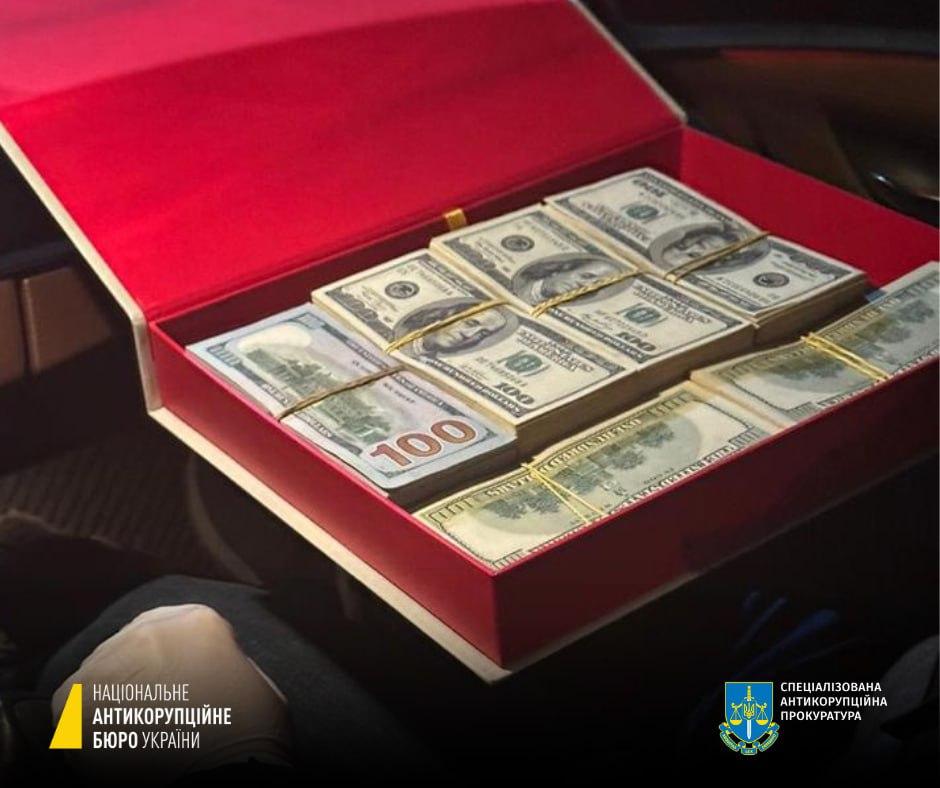
Footage also shows a pink gift bag with oriental symbols, likely containing the box.
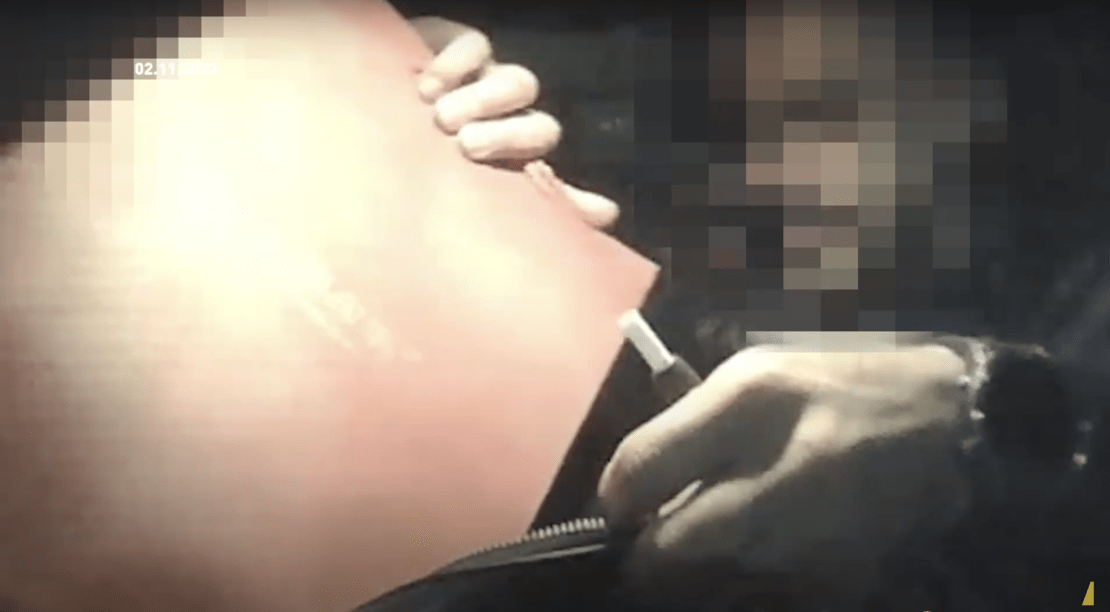
The case is being heard by the HACC.
Glove Box
According to the HACC verdict, in February 2020, Ihor Buksanchuk, Director General of the State Specialized Enterprise Radon, sent a letter to the State Agency of Ukraine for the Exclusion Zone Management, then headed by Acting Chair Kateryna Pavlova. In the letter, he asked her to award him a large bonus for his work in 2019 in exchange for a bribe. He later specified that the amount of the improper benefit would directly depend on the size of the bonus he received and would amount to 50% of the money paid to him, including taxes and fees.
Indeed, after receiving a bonus of UAH 438,000, Buksanchuk, true to his word, handed over nearly half to the head of the agency. The bribe was hidden in a box from latex gloves. As the ruling states, he “handed over a box of medical gloves in white and light blue shades, saying, ‘these are gloves for you.’ On the top of the box was an oval opening, through which the witness saw that the box contained not only gloves but also blue-colored banknotes.”
The HACC sentenced Ihor Buksanchuk to five years in prison with confiscation of property, except for his share of an apartment. The HACC Court of Appeal upheld the verdict. The case is now before the Supreme Court, which will issue the final decision.
***
Some officials, unfortunately, cannot resist the temptation to exploit their position for personal gain. And to hide this, they resort to tricks like those described here. But practice shows: sooner or later, such cases come to light and find their logical conclusion in HACC verdicts.


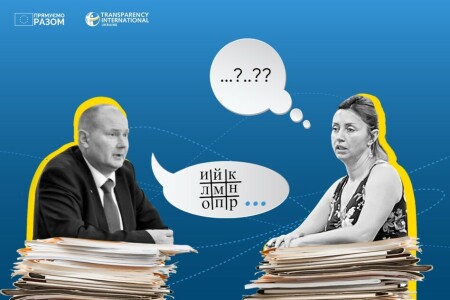
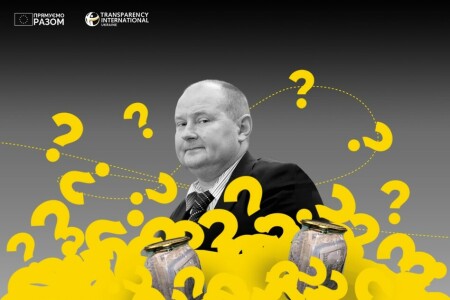
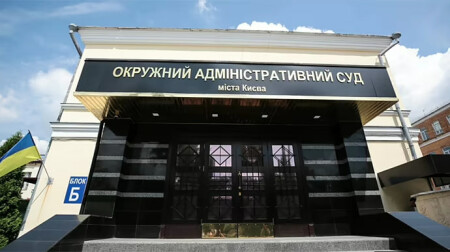
.png)
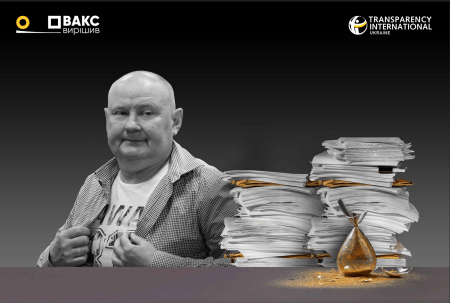
.png)

